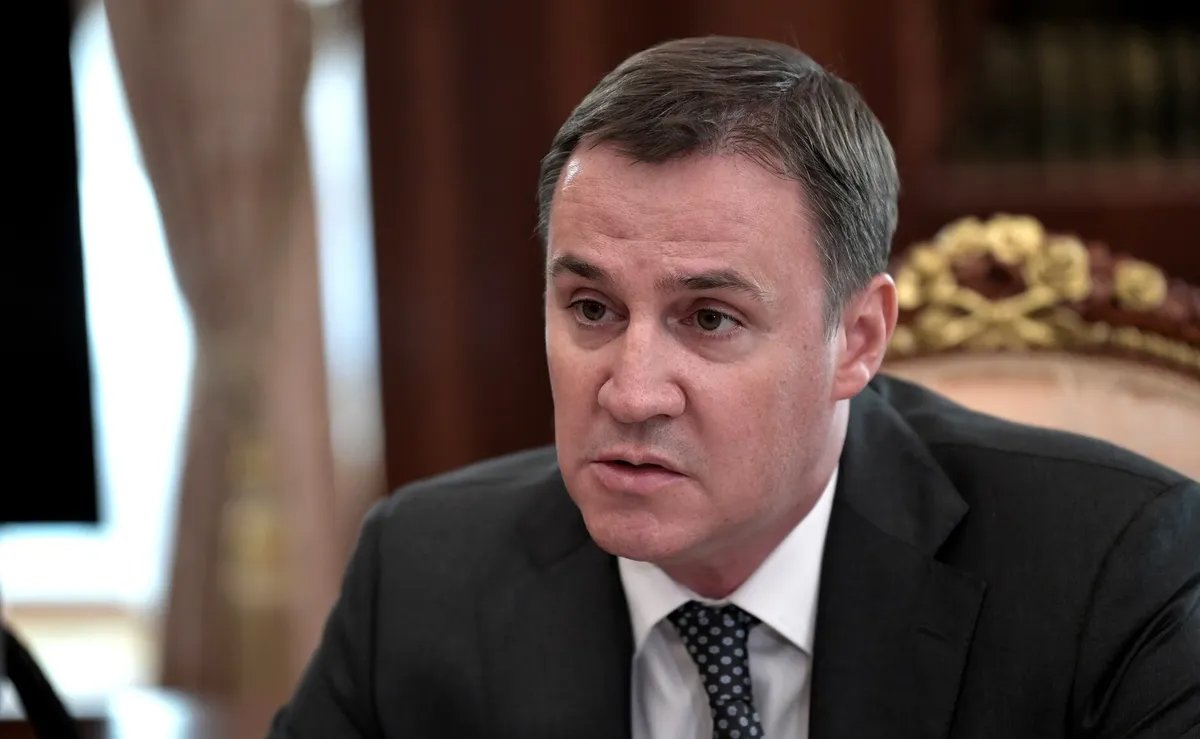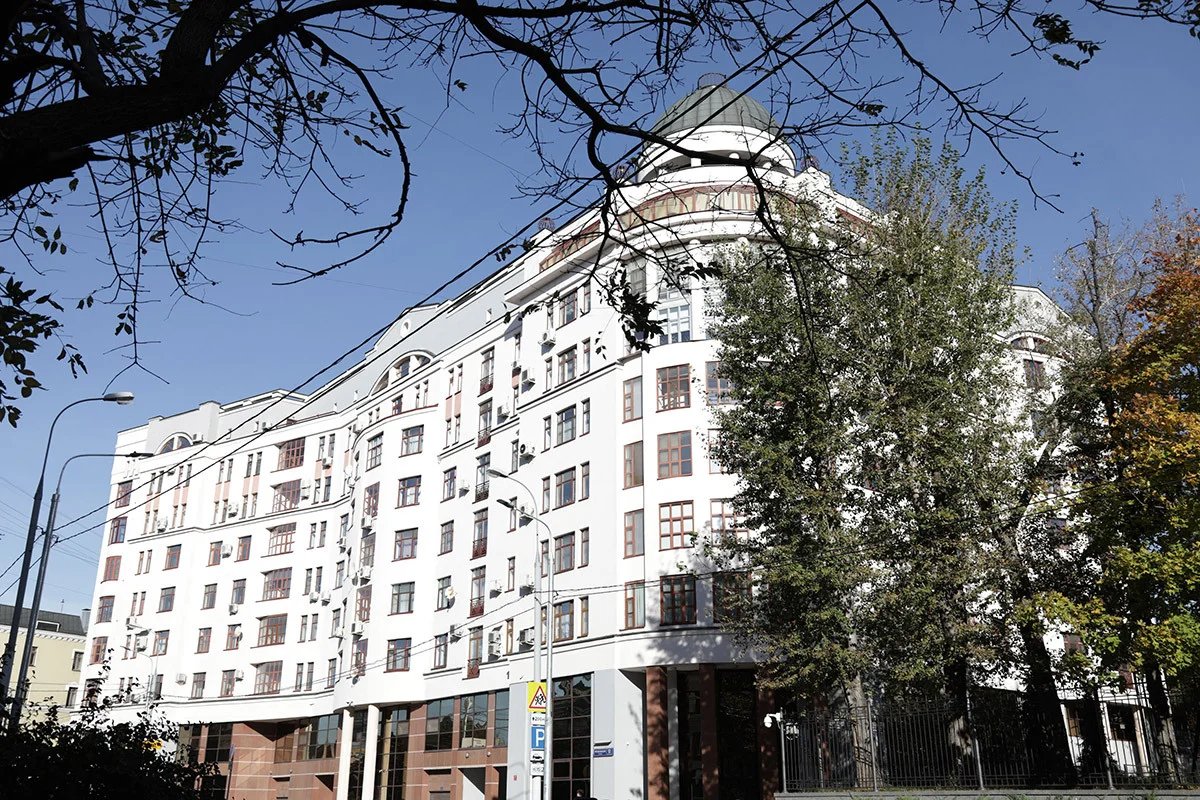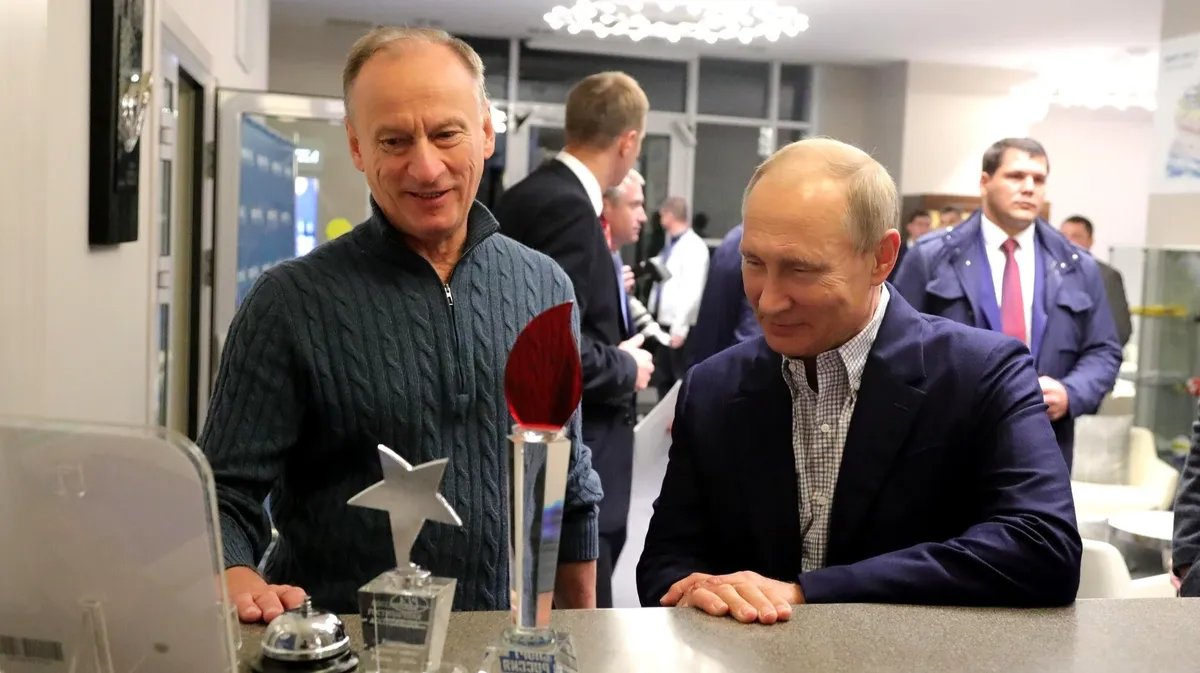For 25 years, Nikolay Patrushev has wielded enormous power and influence at the very highest level of the Russian state, his family being the only elite clan to hold posts both in the government and on Russia’s Security Council. Telegram channel Mozhem Obyasnit and Novaya Gazeta Europe joined forces to find out more about the Patrushev family’s finances.
Patrushev is widely credited with being a Kremlin ideologue whose Russian World sympathies led directly to the invasion of Ukraine. A St. Petersburg native like Vladimir Putin, he was at one point the Russian president’s patron and the man responsible for bringing Putin to Moscow in the late 1990s. Since then, he has never been far from Putin’s side, and found himself elevated by his protégé’s meteoric rise from FSB director to prime minister and ultimately, to president.
Taking over as FSB director from Putin in 1999, Patrushev spent almost a decade in the role, presiding over the agency’s disastrous and deadly response to the Dubrovka Theatre hostage crisis in 2002 and the Beslan school siege in 2004, and yet, due to his patron in the Kremlin, Patrushev’s star has never waned.
Since 2008, Patrushev has chaired Russia’s Security Council, an advisory group of intelligence and security chiefs tasked with advising the president on national security issues, and which forms Putin’s “inner circle” according to Kremlin insiders.
Politburo family
It was at a meeting of the Security Council on 21 February 2022 that Patrushev approved Putin’s proposed recognition of the so-called Donetsk and Luhansk “people’s republics” in eastern Ukraine. Three days later, Russian forces invaded Ukraine.
Mikhail Komin, political scientist and visiting researcher at the European Council on Foreign Relations, calls Patrushev “one of the most radical and conservative” members of the Security Council and said that he has long held Putin’s views on everything.
Nikolay Petrov, head of the Center for Political-Geographic Research, described Patrushev as less the type to promote radical new ideas so much as someone acting as a “mouthpiece of the old, conservative part of the intelligence services”. Crucially, Patrushev also controls Putin’s “connection to the outside world”, Petrov said. “He builds a picture of the world that fits with Putin’s understanding of it.”
Fingers in many pies
Putin’s personal relationship with Patrushev translates into high-powered positions for the whole family. As well as family members in the government and on the Security Council, Nikolay’s youngest son, Andrey, has been a rising star at state oil giant Rosneft since he was appointed advisor to the company’s director over 15 years ago when he was just 24 years old.
Like his father, Andrey found himself sanctioned by the US government on the day the war began, though it doesn’t appear to have affected his career prospects: and Andrey Patrushev has continued his work on developing Russia’s resource-rich Arctic regions, and is on track to become a general contractor in offshore geological exploration for oil giants Gazprom and Novatek.
But by far the most important Patrushev after Nikolay himself is his eldest son and Russian agriculture minister, Dmitry, who has so far managed to escape US sanctions despite being one of the richest members of the Russian government. This power is not just financial, however — Dmitry Patrushev has been posited by the Russian commentariat and Western journalists alike as a potential successor to Putin.

Dmitry Patrushev. Photo: Kremlin.ru
That prediction is not shared by all experts, however. One political strategist, speaking to Novaya Gazeta Europe on condition of anonymity, said that he highly doubted Patrushev fils would succeed Putin, after whom he predicted the current power structure would be unlikely to remain in place.
Petrov agrees that Patrushev would be hard-pressed to assume power “in his own right” without his father’s influence; while Komin said that speculation about Dmitry Patrushev’s political future had “nothing to do with reality” and gave credence to the theory that rumours of Dmitry’s succession had been spread as a means of attacking Nikolay Patrushev for deciding to “make” his son president.
Patrushev becomes Lukov
While there were 667 million records leaked from compromised government and corporate databases last year, Patrushev’s name did not appear among them even once. Telegram channel Mozhem Obyasnit got to the bottom of that, however, discovering that Patrushev is listed by the Federal Tax Service under the pseudonym Yevgeny Lukov, whose date of birth, tax number, and passport numbers all match those of Patrushev.
According to one leak, the salary paid to “Lukov” in 2018 by the Presidential Administration was 5.8 million rubles (then worth €78,300), whereas Lukov’s total income for that year was 33.7 million rubles (then worth €455,000). Lukov/Patrushev was mentioned nowhere else in the tax leaks, though data breaches affecting Moscow real estate and its traffic police revealed that Patrushev was given a spacious grace and favour apartment in an elite building in central Moscow in 2004. The Federal Registration Service has no information about the owner of the apartment.

“The White House” on Moscow’s Krasnopresnenskaya Embankment. Photo: Novaya Gazeta Europe
Other Patrushev family members have similarly swanky residences. Mozhem Obyasnit and Novaya Gazeta Europe used medical clinic and traffic police data to determine that Andrey Patrushev, the youngest son and Rosneft advisor, currently lives in an elite building known as the “White House” on Moscow’s Krasnopresnenskaya Embankment. One square metre in this house is valued, according to the Presidential Administration, at 500,000 rubles (€5,000), which means that Patrushev’s apartment could be valued at up to 128.5 million rubles (€1.3 million).
What is Lukov’s eldest son trying to hide?
This isn’t the first time the Federal Tax Service has disguised the data of high-ranking Russian officials or their relatives. In 2019 it was revealed that both Rosneft CEO Igor Sechin and his son Boris were given new identities for use in the federal tax database.
This isn’t even the only such case in the Patrushev family, according to journalist Andrey Zakharov, who says that Andrey Patrushev was likely given the name Alexey Golubev in the registry. And if that weren’t enough, recent leaks have shown a striking lack of data for Dmitry Patrushev in the tax service database — his income doesn’t appear anywhere.
After locating Patrushev’s 2018 earnings in an earlier leak, it soon became clear why steps had been taken to hide that information in the updated database.
According to official reports, Dmitry Patrushev is one of the richest people in the Russian government. In 2021, his income amounted to 121 million rubles. Three years earlier, in 2018, it reached 184 million. The leaked tax records break down this number, revealing that Patrushev earned 33 million rubles from the non-state pension fund Gazfond Pension Savings, 9.5 million rubles from the insurance company RSHB Insurance, and 41 million rubles from JSC Rosselkhozbank, where he was then the chairman of the board. Because all of the bank’s shares belong to the state, its managers are required to report their income. Patrushev, however, reported only once, in 2013.
Join us in rebuilding Novaya Gazeta Europe
The Russian government has banned independent media. We were forced to leave our country in order to keep doing our job, telling our readers about what is going on Russia, Ukraine and Europe.
We will continue fighting against warfare and dictatorship. We believe that freedom of speech is the most efficient antidote against tyranny. Support us financially to help us fight for peace and freedom.
By clicking the Support button, you agree to the processing of your personal data.
To cancel a regular donation, please write to [email protected]

